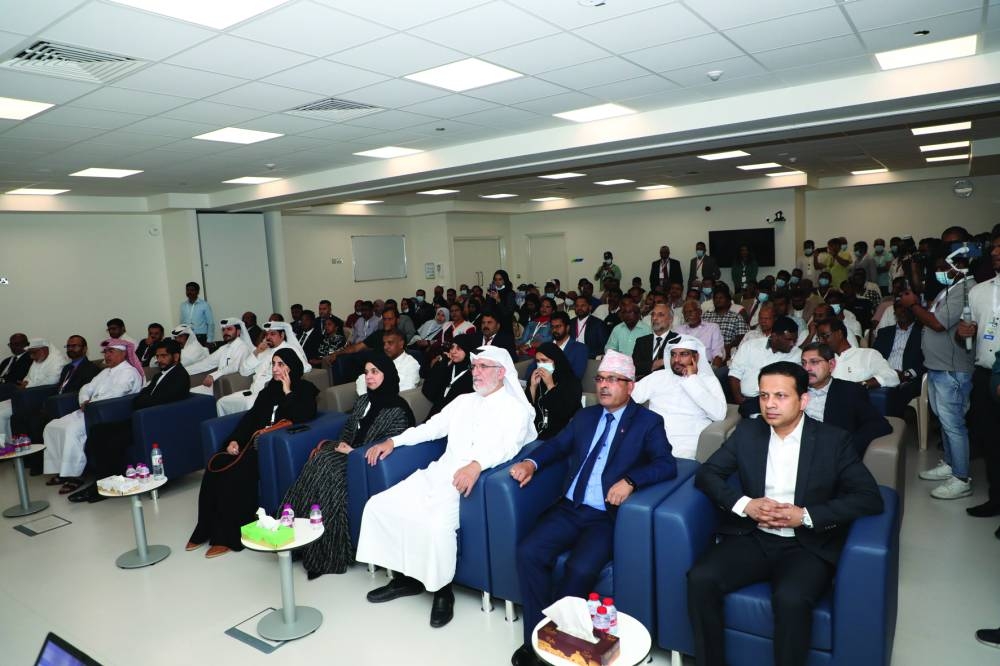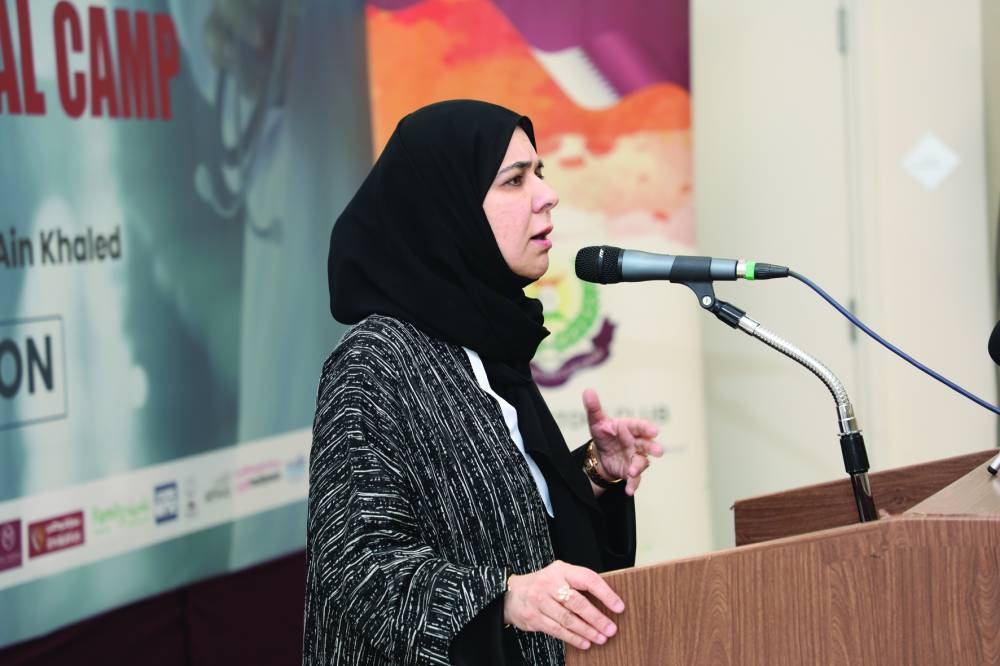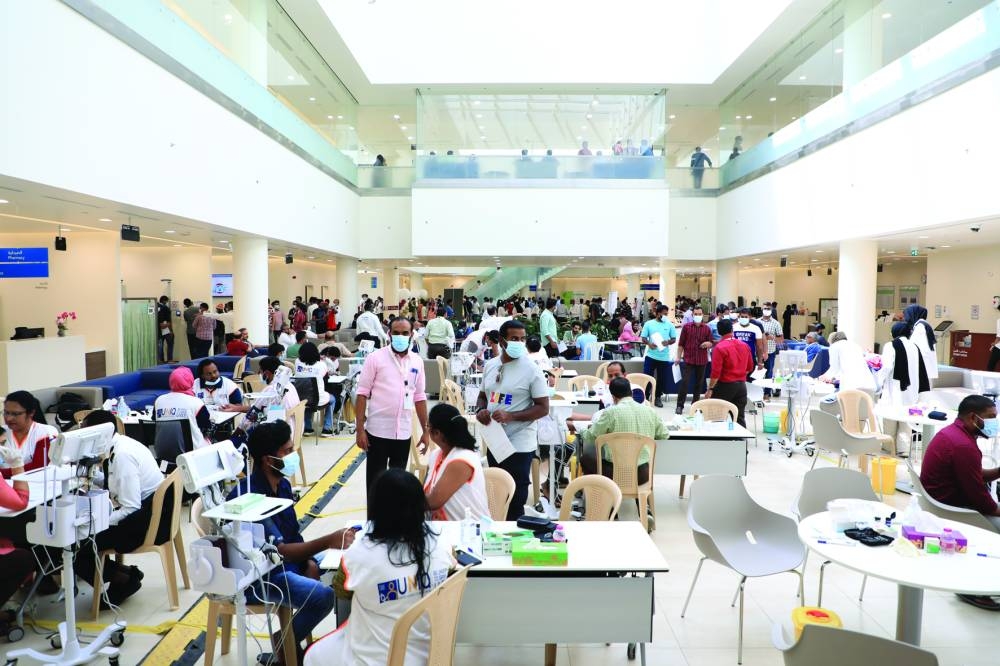The 19th Asian Medical Camp was held at the Umm Al Seneem Health Centre on Friday, witnessing the participation of around 2,700 low-income individuals from across Qatar.
Organised by the Centre for Indian Community (CIC) in association with the Indian Doctors Club (IDC) under the patronage of the Ministry of Public Health (MoPH), Hamad Medical Corporation (HMC) and the Primary Health Care Corporation (PHCC), the camp had 200 doctors, 200 paramedical staff and volunteers, providing due attention and care to the beneficiaries.
“Ample diagnostic and laboratory facilities, along with provisions of free medicine distribution, made the camp a truly relieving experience for the patients,” a statement from CIC said.
Experts in various fields such as cardiology, ENT, orthopaedics, physiotherapy and ophthalmology examined the attendees. Additionally, the camp offered services such as scanning, ECG, audiometry, ophthalmology, oral checkups, cholesterol and sugar tests, as well as clinical tests such as blood pressure monitoring. Free medication was provided for patients.
Screenings for sugar levels, blood pressure, vision, hearing and oral hygiene were held with dedicated counters for blood donation and organ donation.
Dr Samya Ahmad al-Abdulla, executive director of PHCC, inaugurated the camp in the presence of representatives from ministries, embassies of various Asian countries and community organisations.
In her inaugural address, Dr al-Abdulla praised the CIC for its efforts in organising the camp, which exemplifies the enduring wisdom of prioritising prevention over cure. Additionally, she highlighted that the camp would not only serve as a platform for promoting health awareness but also provide a valuable opportunity for individuals affected by lifestyle diseases to seek assistance and support.
K C Abdullatheef, vice-chairman of the medical camp organising committee, noted in his address the quality and excellence that the the CIC has strived to maintain throughout the last 18 camps.
The Asian Medical Camp is significant due to its numbers and the extent of its reach, helping a large number of low-income expatriates in a single day by providing specialised medical care and screening across different specialisations, he stressed.
It also reflects an exemplary model of collaboration between the government and the community, and strengthens the spirit of teamwork among various community organisations supporting the camp.
He explained that professional and humanitarian approaches in planning and implementation ensured the smooth organising of the camp. “The continuous reviews and changes brought into the system have eased the procedures while improving the service quality,” he added.
Dr Biju Gafoor, IDC president, shed light on the meticulous arrangements made for the camp, providing valuable insights into the comprehensive preparations undertaken.
A number of other dignitaries were present on the occasion: Dr Amna Abdulla al-Ansari, Umm Al Seneen Health Centre director; Naresh Bikram Dhakal, ambassador of Nepal; Mohamed Mafaz Mohideen, ambassador of Sri Lanka; Dr Hiyam al-Sada, PHCC Western regional director; Ahmad Mohamed al-Maliki, HMC assistant executive director; Ft-Lt Abdulaziz al-Muhannadi, Community Awareness officer at the Community Police Department, Ministry of Interior; Dr. Abdul Wahid al-Mullah, chairman of the Cardiothoracic Department at HMC; Dr Maktoum Aziz, IDC secretary; Noufal Paleri, CIC general secretary; P P Abdu Raheem; and Dr Mohan Thomas.
Mohamed al-Meer, Labour Adviser at the Ministry of Labour, visited the camp and praised the efforts while assuring the organisers of support from the ministry for future endeavours. He noted that the smiles on the faces of the underprivileged patients served as true testimonies to the effectiveness of such camps.
Awareness lectures were delivered on the occasion by Dr Mahesh Menon, Dr Rashmi Gurav, Dr Devi Krishna and Dr Manichandran.
The awareness sessions, according to the statement, evoked a good response and recorded the attendance of more than 1,000 individuals.
Throughout the camp, doctors, along with hundreds of paramedics and technicians from HMC and Qatar Red Crescent Society, were engaged as volunteers, working hand in hand with the Indian Doctors Club.
The camp provided comprehensive medical examinations and treatment to pre-registered low-income labourers from the Asian community. The participants had access to detailed diagnostic tests, and all necessary medicines were provided to them free of charge.
The camp, organised in four shifts, commenced at 7am and continued until 6pm, ensuring extended hours of service for the participants.
Collaborating with the camp were various organisations and institutions, including the Indian Pharmacists Association Qatar, Qatar Diabetes Association, United Nurses of India and various community organisations from Nepal, Sri Lanka, Pakistan and Bangladesh, played a pivotal role in ensuring the camp's success.

Dr Samya Ahmad al-Abdulla and other dignitaries at the inauguration of the 19th Asian Medical Camp.

Dignitaries at the inauguration of the camp.

Dr Samya Ahmad al-Abdulla speaking at the event.

A view of the medical camp.
